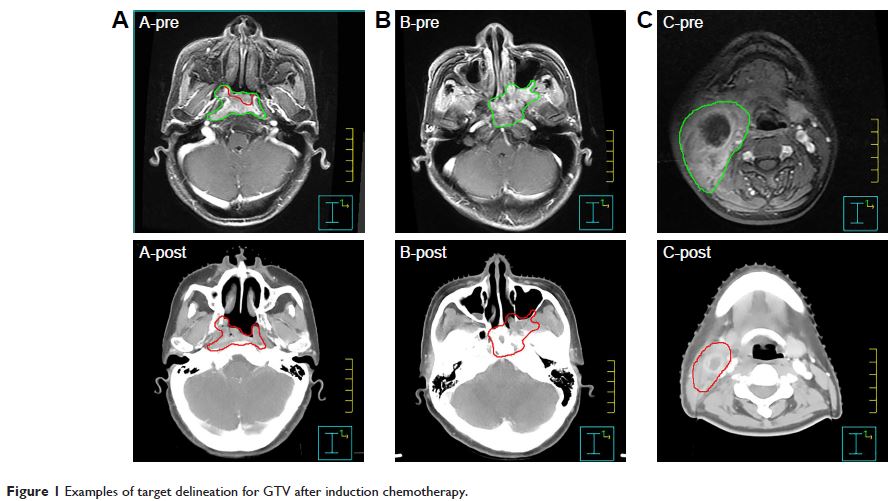109451
论文已发表
注册即可获取德孚的最新动态
IF 收录期刊
- 3.4 Breast Cancer (Dove Med Press)
- 3.2 Clin Epidemiol
- 2.6 Cancer Manag Res
- 2.9 Infect Drug Resist
- 3.7 Clin Interv Aging
- 5.1 Drug Des Dev Ther
- 3.1 Int J Chronic Obstr
- 6.6 Int J Nanomed
- 2.6 Int J Women's Health
- 2.9 Neuropsych Dis Treat
- 2.8 OncoTargets Ther
- 2.0 Patient Prefer Adher
- 2.2 Ther Clin Risk Manag
- 2.5 J Pain Res
- 3.0 Diabet Metab Synd Ob
- 3.2 Psychol Res Behav Ma
- 3.4 Nat Sci Sleep
- 1.8 Pharmgenomics Pers Med
- 2.0 Risk Manag Healthc Policy
- 4.1 J Inflamm Res
- 2.0 Int J Gen Med
- 3.4 J Hepatocell Carcinoma
- 3.0 J Asthma Allergy
- 2.2 Clin Cosmet Investig Dermatol
- 2.4 J Multidiscip Healthc

诱导化疗后进行强度调制放疗可使 T3-4 鼻咽癌的大体肿瘤区减少
Authors Xue F, Hu C, He X
Received 25 April 2017
Accepted for publication 21 June 2017
Published 6 July 2017 Volume 2017:10 Pages 3329—3336
DOI https://doi.org/10.2147/OTT.S140420
Checked for plagiarism Yes
Review by Single-blind
Peer reviewers approved by Dr Akshita Wason
Peer reviewer comments 3
Editor who approved publication: Dr Ingrid Espinoza
Purpose: A common problem in stage T3–4 nasopharyngeal carcinoma (NPC) is
the narrow gap between the primary tumor and neurological structures, which
makes dose optimization difficult. Considering that significant tumor shrinkage
may occur during induction chemotherapy (IC), this study explored the efficacy
of intensity-modulated radiotherapy (IMRT) using reduced gross tumor volume
(GTV) in the treatment of T3–4 NPC.
Patients and methods: Between January 2009 and April 2014, 103 patients with
non-metastatic stage T3–4 NPC were prospectively recruited. They were assigned
to accept IC, followed by reduced-volume IMRT and adjuvant chemotherapy. GTV
was based on the post-IC volume of intracavity tumors and lymph nodes, and the
pre-IC volume of the remaining involved structures.
Results: For all treated patients, the 3-year local
failure-free survival (LFFS) was 91.9%. After IC, 91 (88.3%) patients achieved
local objective response (OR), and their 3-year LFFS rates were significantly
better than in patients who failed to achieve local OR (94.1% vs 75.0%, P =0.023). A multivariate analysis
demonstrated the prognostic value of tumor response to IC for LFFS. Dosimetric
analysis showed good homogeneity, and the dose constraints were stringent.
Asymptomatic temporal lobe necrosis in the ipsilateral side of tumor occurred
in one patient.
Conclusion: IMRT using a reduced GTV delineation delivered
satisfactory doses to the target volumes and avoided overdosing of critical
neurological structures. Results showed satisfactory survival outcomes with few
treatment-related toxicities. Tumor response to IC could facilitate selection
of patients with stage T3–4 NPC eligible for treatment with this method.
Keywords: nasopharyngeal
carcinoma, intensity-modulated radiotherapy, induction chemotherapy, target
delineation
